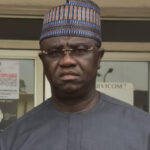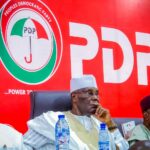
The United Nations, on Wednesday, said the presidential election held on February 25 revealed the sharp ethnic, religious and demographic fault lines in Nigeria, despite the signing of the Peace Accord by candidates and their political parties.
The UN also stated that since Nigeria is standing at a crossroads, engagement in genuine dialogue, involving all the stakeholders would be pivotal to calling for accountability to restore confidence in governance.
The Senior Human Rights Advisor in the Office of the UN Resident Coordinator, Ms. Adwoa Kufuor, stated this during the launch of a national stability dialogue in Abuja.
The event with the theme, ‘Promoting post-election stability, justice and gender inclusion,’was organised by a peace building organisation, International Alert, in collaboration with the National Orientation Agency and Office for Strategic Preparedness and Resilience.
At the event, the Country Director of International Alert, Paul Nyulaku, advised the President-elect, Asiwaju Bola Tinubu, to have a dialogue and negotiate with aggrieved political parties and persons, in order to douse tension in the country.
Kufuor said, “As we know, many peace accords, which were based on the constitution and the Electoral Act, were signed both at the state and federal levels, where political parties made commitments to ensuring a peaceful climate. The presidential elections have revealed the sharp ethnic, religious, and demographic fault lines behind these numbers. This only serves to remind us it takes more than a signing of documents. It requires genuine political will to translate paper commitments into concrete actions.
Nyulaku said “the incoming government must prioritise national reconciliation and seek to build broad support for democratic institutions and non-violent conflict resolution.”
The chairman of the occasion and former Chief of Defence Staff, Gen. Martin Luther-Agwai (retd.), said for effective dialogue, parties involved must ensure that they speak in a non-partisan manner.





